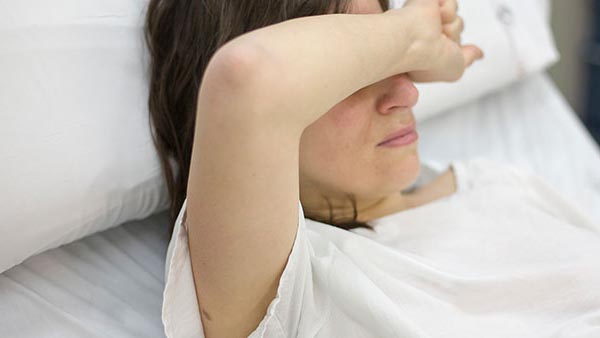Heavy period, also known as menorrhagia, is a common condition that many women experience at some point in their lives. It is characterised by abnormally heavy and prolonged menstrual bleeding, which can be a frustrating and uncomfortable experience.
In this blog article, we’ll talk about the causes of heavy periods and offer some tips on how to deal with them.
What Causes Heavy Periods?
If you suffer from heavy periods, there could be various factors involved. Some of them include the following:
- Hormonal imbalance: The hormones estrogen and progesterone control the menstrual cycle. An imbalance in these hormones can result in heavy bleeding.
- Non-cancerous uterus growths such as fibroids and polyps
- Irregular ovulation: If you don’t ovulate regularly, areas of your endometrium (uterine lining) may become too thick. It is a prevalent problem during puberty, perimenopause, and in women with polycystic ovary syndrome (PCOS).
- Endometriosis: A condition in which the tissue that normally lines the uterus grows outside of it, usually on the ovaries, fallopian tubes, and other pelvic structures.
- Adenomyosis: A condition in which the tissue that typically lines the uterus grows into the muscular wall of the uterus.
- Birth control such as intrauterine devices (IUDs)
- Certain medications, including blood thinners and aspirin
- Stress, unhealthy diet, or other significant life changes
How to Deal with Heavy Periods?
If you are experiencing heavy periods, you must speak with a healthcare professional. They can help diagnose any underlying medical conditions that may be causing your heavy periods and suggest appropriate treatment options.
In some cases, heavy periods caused by fibroids, growths, or endometriosis are best treated surgically. However, you can combine lifestyle changes and medication to deal with them.
- Hormonal Birth Control
Hormonal birth control can help manage your menstrual cycle and lessen the severity of heavy periods. It contains oestrogen, which encourages blood thickening and clotting. This can result in reduced menstrual flow, shorter flow duration, and relief from the discomfort associated with heavy periods. Some of the hormonal birth control options include:
- Birth control pills
- Patches
- Injections
- Intrauterine devices (IUDs)
- Non-steroidal Anti-inflammatory Drugs (NSAIDs)
Certain NSAIDs, such as ibuprofen and naproxen, can alleviate menorrhagia pain and make your periods lighter. This happens because NSAIDs lower the amount of prostaglandins in your uterine lining, hormones that induce pain and bleeding. While ibuprofen is beneficial, some NSAIDs, such as aspirin, that have blood-thinning effects should not be used because they may exacerbate bleeding.
Your doctor may also prescribe stronger NSAIDs like tranexamic acid and desmopressin. Desmopressin helps blood clot to reduce bleeding, and tranexamic acid can be taken at the start of a period to lessen bleeding.
- Lifestyle Changes
Although lifestyle changes like eating a healthy diet and staying hydrated will not stop menorrhagia, they may help manage symptoms, especially when using other remedies and treatments.
- Consuming iron-rich foods like meat, seafood, beans, nuts, seeds, and leafy green vegetables can help prevent anaemia, a condition in which you lack healthy red blood cells.
- Eat food rich in vitamin C, including oranges, bell peppers and broccoli, to help your body absorb the extra iron in your diet.
- Avoid processed sugar, trans-fats and starchy carbs, as they can worsen your menorrhagia symptoms.
- Drink plenty of water to stay hydrated and reduce bloating and water retention, which can help alleviate your heavy periods.
- Manage Stress
Your body is sensitive to changes. Stress can impact hormone levels, which can then affect your menstrual cycle. It can range from missed or irregular periods to heavy menstrual bleeding. Therefore, it is important to manage stress. Consider practising yoga, meditation, or deep breathing exercises to regulate your menstrual cycle and reduce the severity of menorrhagia.
- Bonus Tip: Use Menstrual Products Designed for Heavy Flow
Heavy periods require menstrual products that provide maximal protection. While using these products will not reduce the flow, they may help you keep bathroom trips to a minimum. You can use superabsorbent period pads or tampons. Additionally, you can consider using menstrual cups or overnight pads for heavy flow, which can hold more blood than regular period pads or tampons.
Take Away
Heavy periods can be a challenging experience for many women. However, there are several options available to deal with them effectively. From lifestyle changes to medications, it’s important to consult a healthcare professional and choose the best treatment for your menstrual health.
